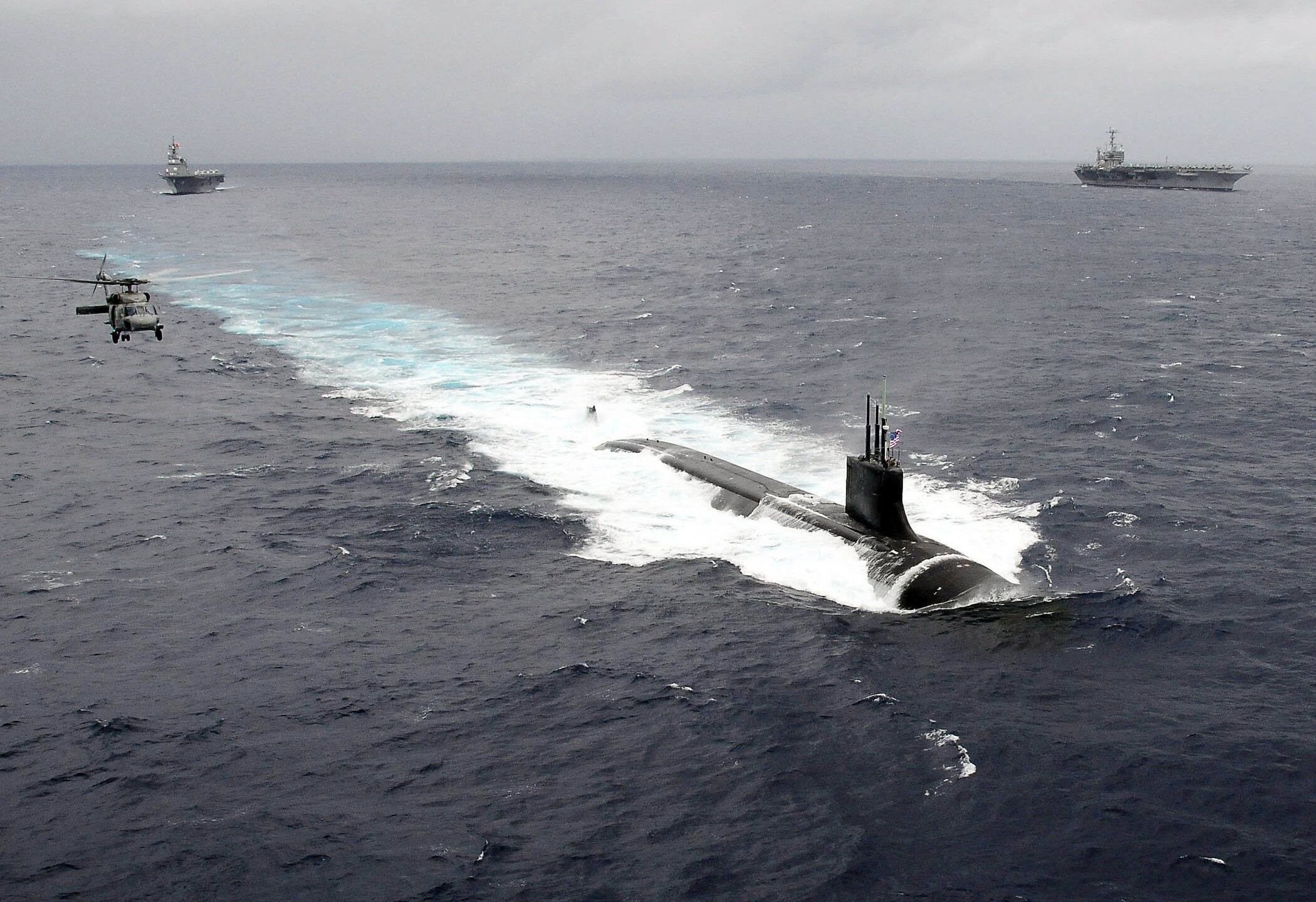June 4, 2023
A security dilemma? How China views the AUKUS submarine deal

During a recent trip to China, I had the chance to take in the newly renovated Qingdao Chinese Navy Museum. What used to be a sleepy and rusting collection of exotica (near to a more impressive museum about the famous local Tsingtao brew) has now graduated to the big time.
Along with detailed battle maps of actions against the Taiwan Navy from the late 1950s, large-scale dioramas depicting the 1988 action against Vietnam in the South China Sea, and another seemingly demonstrating a hypothetical amphibious assault against Taiwan, one can also find an actual nuclear submarine — quite a striking view.
While that boat was tied up at the pier and not open to visitors, plenty of exhibits inside the cavernous and packed halls extolled the achievements of the Chinese submarine force, from its very first assembled hull in 1957 to the endurance record by a Chinese nuclear submarine in 1985. One can see the mug used by Peng Shilu and the eyeglasses of Huang Xuhua — the two most famous designers of China’s very first nuclear submarine.
While such artifacts might seem a bit quaint, the issue of the intensifying U.S.-China naval rivalry is now in the headlines almost every day, not least due to the recent AUKUS agreement, uniting Australia, the United Kingdom and the U.S. in one single nuclear attack submarine enterprise. This agreement was further solidified at the recently concluded G7 in a meeting between President Joe Biden and Australian Prime Minister Anthony Albanese.
More on Asia

Featuring Jennifer Kavanagh
October 4, 2025








